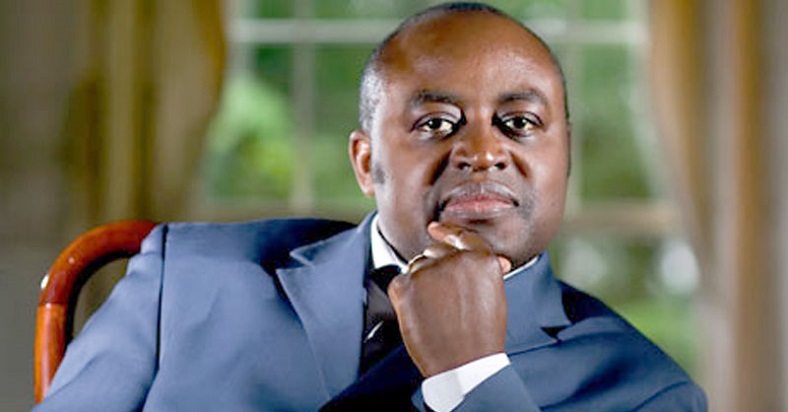The Finance Committee has urged Parliament to increase the excise duty levy on fuel from Shs1450 per litre to Shs1550 per litre, although the proposal by the government to impose Shs300 per liter on each liter of kerosene has been rejected as such a levy would affect the low income earners in Uganda.
Parliament’s Finance Committee has rejected the proposal to impose a 75% excise duty rate on each liter of mineral water, describing the rate as too high and instead proposed to have the rate lowers to Shs50 in order to encourage investments into the sector.
“The Committee observed that mineral water industry has grown. This proposal for a fixed rate is to level the ground between the compliant and non-complaint producers of mineral water by providing for a both fixed rate and the advalorem rate. The Committee however noted that the proposed rate of Shs75 per liter is too high and should be reduced to Shs50 to encourage more investments in the industry,” Amos Kankunda, Chairperson Finance Committee.
The Finance Committee also recommended to Parliament to remove excise duty imposed on incoming international call services of USD Cents 0.09 per minute on calls originating from Tanzania and Burundi, arguing that Uganda is already in the One Area Network in which interconnection calls between Uganda, Rwanda and Kenya enjoy lower rates of telephone calls between each other, the proposed amendment will add Tanzania and Burundi into the network within the Ugandan laws.
“The effect of this amendment will be the affordability and ease of communication between persons in Uganda and other Members States in the East African community as mentioned above,” remarked Kankunda.
The Finance Committee has backed the proposal by Gov’t to impose a 0.5% excise duty rate the value of the transaction on payment services of withdrawals of cash through agent banking, saying such a move would ensure equal distribution of the tax burden within Uganda, instead of limiting it to only mobile money transactions.
“The proposed amendment is intended to provide for an equal tax treatment to that of mobile money for payment services that offer a similar service to mobile money. These payment services include Chipper Cash and Wave Transfer. At present, withdrawals from these services are not subject to the same excise duty as that levied on mobile money. This is because, the current law levies the tax on telecommunication companies which those being targeted are not,” said Kankunda.
“This proposal seeks to remedy this unequal tax treatment by including these in the realm for taxation. Enhancing equity and fairness by including all major electronic wallet platforms as the tax burden on Ugandans-current tax burden would be distributed evenly creating a level playing field and providing an expanded tax base resulting in increased Government revenue. This ensures a ‘same service, same rules approach’ and incentivizes continued growth of digital financial services while still contributing to the overall tax effort. This approach promotes both financial inclusion and responsible tax collection for the benefit of all Ugandans,” added Kankunda.
Ibrahim Ssemujju (Kira Municipality) has questioned the audacity by Gov’t to impose a Shs1550 tax levy on each liter of fuel, yet their own cars are fueled by taxpayers, describing such a proposal as a greedy move by Gov’t to tax already heavily taxed taxpayers in Uganda.
“Government should not be greedy; you are already overtaxing fuel. Why do you turn it into a soft target for tax increment? A minister whose fuel is bought by the taxpayer must not increase taxes on fuel unnecessarily. The government’s taxation policies on fuel in Uganda reveal a glaring contradiction between its revenue-generation strategies and its responsibility towards citizens’ well-being. Despite being fully aware of the adverse effects of escalating oil prices on both production costs and individuals’ disposable income, this government under President Museveni continues to burden its citizens with exorbitant taxes on fuel,” said Ssemujju.
In their Minority reports, the Opposition MPs including; Ssemujju, Muwanga Kivumbi (Butambala County) and Hanifah Nabukeera (Mukono DWR) revealed that Government is currently collecting Shs1450 per litre of petrol, Shs130 per litre of diesel. Annually, Government collects Shs1.6Trn on petrol, Shs l.lTrn on diesel and about Shs3Bn on Kerosene and these taxes on both petrol and diesel are the key driver of fuel pump price and that Uganda levies the highest tax on fuel in the region.
“We continue to worn this government that, the consequences are dire: as fuel prices soar, production becomes more costly, hindering economic growth and potentially leading to job losses. Moreover, the average Ugandan faces a significant reduction in disposable income, as higher fuel costs trickle down into increased prices for goods and services across the board. This scenario not only jeopardizes individuals’ financial stability but also undermines consumer confidence and investment, exacerbating economic instability. The more reason why many businesses close every year,” added Ssemujju.
Ssemujju also pleaded with Parliament to reject the proposal by Gov’t to introduce a levy of Shs.500 per 50 kg of Lime, adhesive and Grout, saying such a move would likely exacerbate the current 2.5 million housing deficit in the country, which is contrary to Gov’t policy of decent and affordable housing.
“Obviously when you increase taxes on building materials, you are increasing the cost of construction. This may discourage investment in this sector or may make renting very expensive. Again we plead with this government not to look of one side of revenue enhancement but also look of the plight of its citizens,” said Ssemujju.





